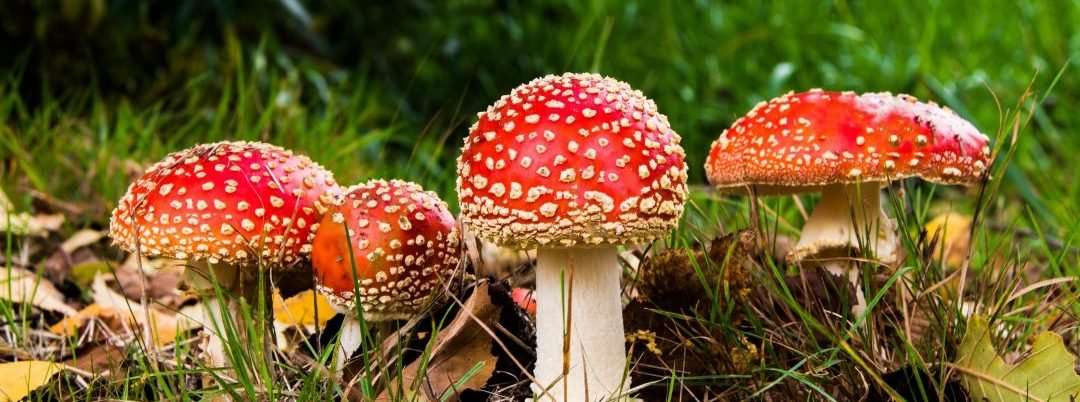In a recent study, the Psychedelic Research Group at Imperial College London explored the potential of using psychedelics to treat certain mental illnesses such as depression. The research team argued that this may be a more effective treatment, as it relieves symptoms by activating serotonin 2A, as opposed to 1A—the receptor activated by antidepressants and antipsychotics. “Activating serotonin 2A receptors may be a good thing, as it makes individuals very sensitive to context and to their environment. Crucially, if that is made therapeutic, then the combination can be very effective,” explained Dr. Robin Carhart-Harris, lead author and Head of Psychedelic Research at Imperial.
This research challenged the scientific world’s deep-rooted beliefs about hallucinogens: never in their wildest dreams would doctors, therapists, and scientists consider treating patients with a psychedelic drug. Until now, that is. This study from Imperial College London raised brows and prompted new considerations. And now its researchers are back with further evidence for the beneficial use of psychedelics in the medical field.
The newest study “Increased amygdala responses to emotional faces after psilocybin for treatment-resistant depression,” which is published in Frontiers in Pharmacology, says that psilocybin—the active compound in magic mushrooms—can alleviate symptoms of depression without the dulling of emotions that occurs with selective serotonin reuptake inhibitors (SSRIs). The researchers note that the psychedelic experience could help patients with depression who haven’t had any luck with other treatment methods.
Antidepressants are commonly used to treat depression, as they prove to alleviate symptoms in many depressed patients. But these drugs can also produce unwanted effects: they can inhibit how the brain processes strong emotions, diminishing positive moods and experiences. The research team from Imperial College London may offer a solution for avoiding the aforementioned negative effects by revitalizing the brain and subsequently reviving a patient’s emotions with the help of magic mushrooms.
To reach these findings, the researchers held an open label trial—meaning the participants knew what they were taking—and evaluated 20 volunteers with depression. These subjects were asked to refrain from taking any antidepressants in the two weeks leading up to the trial. Then, they were given two oral doses of psilocybin with psychiatric support: first, an initial low dosage of the drug, and then a second, stronger therapeutic dose a week later. Additionally, 19 of the 20 volunteers completed fMRI scans both before and after treatment so the researchers could measure changes in brain activity; the subjects were shown happy, scared, or neutral human faces, while the fMRI captured their responses.
At the close of the study, participants had only positive things to say about the treatment—in fact, they reported feeling emotionally reawakened and functioning. Furthermore, upon evaluation of the scans, the researchers found that the patients had a much stronger response to the emotional faces after the treatment, particularly in the amygdala: the brain’s center of emotions.
The researchers were intrigued by these findings, but they also acknowledged the need for follow up studies to confirm the effects are a direct result of the drug, as opposed to other factors like the psychological support provided to the patients during treatment. They’re in the midst of planning larger trials, which won’t be open label—the participants won’t know whether they’re receiving psilocybin, an SSRI, or a placebo. Additionally, further studies will explore how psilocybin affects healthy individuals who do not have depression.
Imperial College London (2018, January 15). Can Psychedelic Drugs ‘Reconnect’ Depressed Patients with Their Emotions. NeuroscienceNews. Retrieved January 15, 2018 from http://neurosciencenews.com/depression-emotion-psychedelics-8315/
Roseman, L., Nutt, D. J., & Carhart-Harris, R. L. (2018, January). Quality of acute psychedelic experience predicts therapeutic efficacy of psilocybin for treatment-resistant depression. Frontiers in Pharmacology. Retrieved on January 16, 2018 from https://www.frontiersin.org/articles/10.3389/fphar.2017.00974/abstract

Rogue_3 on January 19th, 2018 at 18:29 UTC »
As a communications person who works with epidemiologists on a somewhat regular basis, the keyword here is "suggests." Epis are super sensitive about what terms they use to describe what the data is telling them. There's a big difference between suggests, associated with, and causes.
kerovon on January 19th, 2018 at 18:06 UTC »
Link to the full, open access study.
Abstract for Convenience:
DanZigs on January 19th, 2018 at 17:14 UTC »
While interesting, this was an open study of about 20 patients, not a randomised trial. No one should ever change their practice based on such low level evidence. It would be interesting to know how psilocybin compares to an active control like a benzodiazepine and about the durability of the beneficial effects.